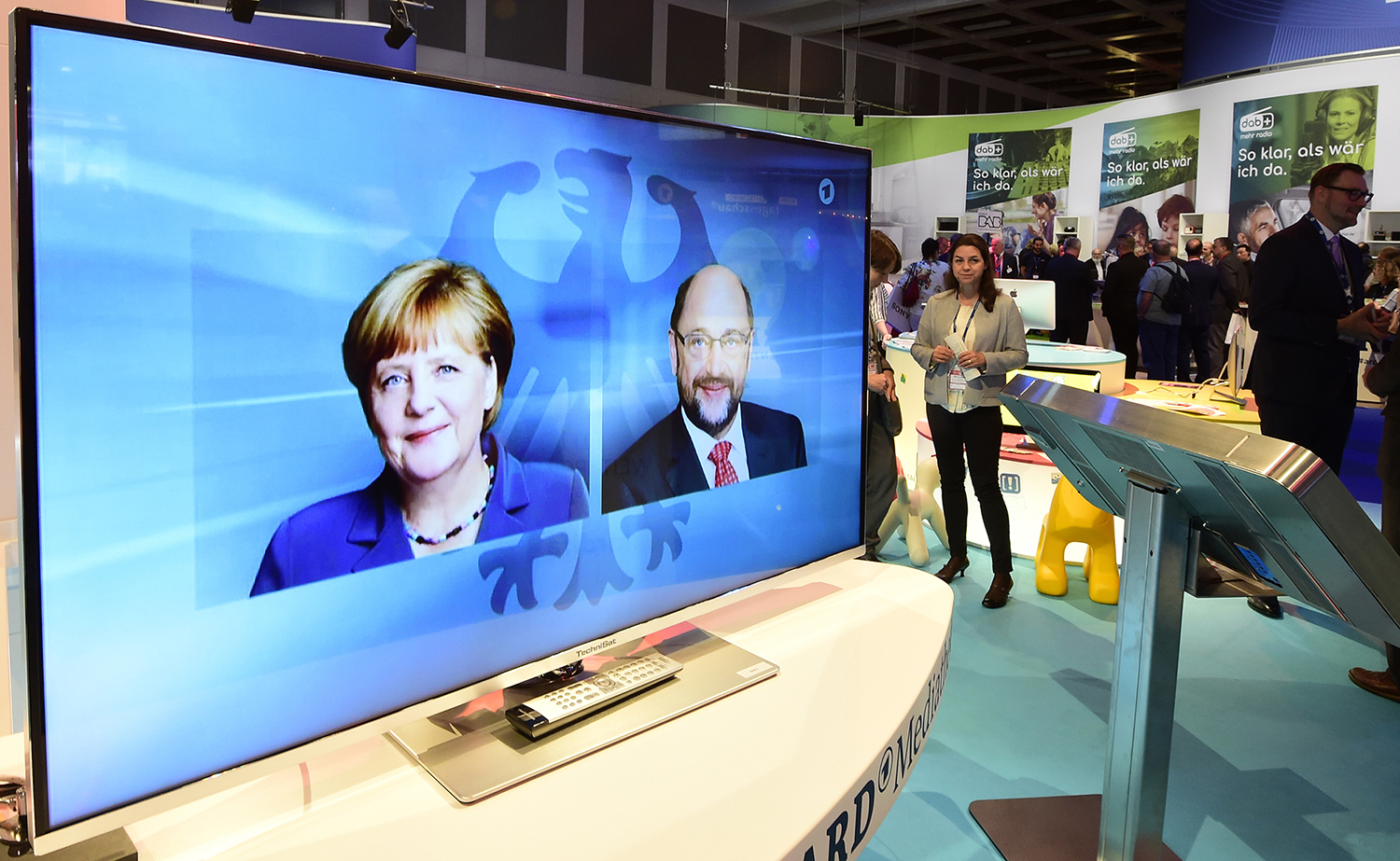Race for the Bundestag
The German elections of September 24 are projected to secure the lead of the outgoing President’s CDU Party in the largest and richest Country of Community Europe. In all likelihood the new government will be formed with a coalition, but Germany and the EU are still relying on her

There is great anticipation for Germany’s Federal elections of September 24 also outside of the Country. Important political decisions at European level and, most of all, the debate on the future of the EU, have been adjourned until after the election, given the decisive importance of the German partner. There is widespread speculation on the outcomes of the election, but one thing is sure: the Christian Democratic Union (CDU), expected to gain 38% of the vote according to the latest surveys, will obtain a relative majority and Angela Merkel will be re-elected as Federal Chancellor. It remains uncertain which party will enter the coalition with the CDU to ensure an absolute majority. What will change with the election? A consistent number of Germans don’t expect the new government to adopt a new political line. They support Angela Merkel’s Party because they are sure that their choice won’t bring about radical changes. In fact, a great majority of voters, after 12 years of her term in office as German Chancellor, are incredibly satisfied. There are but few bitter controversies at domestic level, while citizens’ main concerns relate to international and European policies: the North-Korean threat, the unpredictability of the US President, Turkey’s distancing from Europe, the unstable situation in the Middle East, the migratory pressure from Africa, the ongoing conflict in Eastern Ukraine, along with the relations with Russia, Brexit and the future of the European Union. All of these uncertainties, within a crisis context, affect the German election campaign.
The Federal Chancellor is put to the test on these fronts, but she is met with widespread approval.
Also her political competitor, Social Democrat leader Martin Schulz (SPD), is an expert in international and European policy. They both consider the relaunching of European integration policy as a decisive answer to the fears and concerns related to these challenges. A prevailing majority of German citizenry is on their side. In this respect, EU partners expect Germany – and rightly so – to show a greater degree of purposefulness, proportionate to its political bearing; to assume responsibility for Europe, and to renounce a set of dogmatic constraints that have prevented the German Chancellor from conveying the same degree of solidarity commensurate with its position as the strongest and richest economic power in the EU. Considering that the painful requests of the European Union – repeatedly solicited by Germany – have proved to be effective in various Countries, the German politician might abandon her reservations with regard to a further alleviation of Greece’s debt burden and support the Country’s economic power with generous investments in the EU’s most needy Countries. The European environment is very much in favour of a recovery of the integration process, which entails the crucial support of the German political leader. Recent elections in a number of EU Member Countries have shown that anti-European populism fails to prevail in a democratic milieu, although nationalistic drives remain strong in a number of Countries, notably in Poland and Hungary. Moreover, the widespread awareness that extra-European crises must be addressed with a higher degree of joint pressure on the part of Europe, under the guidance of France and Germany, prompted a set of reflections already last year, resulting in the first decisions aimed at structured and permanent cooperation in the areas of defence and education, with the creation of a dedicated fund and a coordination centre. Finally, in the declaration of past March 25, on the occasion of the 60th anniversary of the signing of the Rome Treaties, Heads of Government and State of EU Member Countries voiced renewed consensus to the possibility of allowing individual Member Countries to proceed with integration and with the consolidation of EU political system – without waiting for those who are still reluctant but who are free to join in the front line at a later stage. This leaves room for new initiatives and measures, thereby circumventing the unanimity principle which had prevented the EU from taking much-needed actions on several occasions. The election of French President Emmanuel Macron also made possible the recovery of effective French-German cooperation, capable of giving momentum to Europe and critical to European political progress. Immediately after his election, Macron visited the Federal Chancellor in Berlin to convey his readiness to work together and concretize the first proposals. Moreover, he reiterated his determination to carry out economic and labour market reforms announced in his election campaign in France, which Berlin considers essential prerequisites for the success of a new European beginning that entails recovery from the economic and monetary crisis. In the meantime, the French President has demonstrated his determination to achieve these goals. This represents a further encouragement for Angela Merkel, who probably also needs it to involve those MPs that are still reluctant. It is expected that after the Bundestag elections, supported by a new mandate and in agreement with Emmanuel Macron, the German Chancellor will support or adopt all the necessary measures. The possibility of proving that her last two years of Chancellorship will be remembered at European level on the same footing as her two illustrious predecessors, Konrad Adenauer e Helmut Kohl, will help her overcome her own circumspection and the qualms of the public opinion.